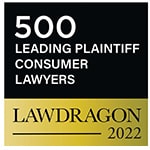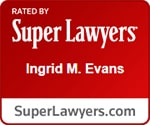ATTORNEY NEWSLETTER
The SEC’s Office of Investor Education and Advocacy recently released an Investor Bulletin about Regulation A, which was recently amended to create a new exemption from registration under the Securities Act.
Thanks to Regulation A, companies may offer and sell securities to the public but with more limited disclosure rules than publicly traded companies. This can help smaller companies raise money in their early development stages.
The recent changes to Regulation A can help provide investors with new opportunities to invest in small or early stage businesses. However, investors should always be careful of the risks involved in a new investment. Investments in these types of companies are speculative, and a startup may not find a market for their product or service. The SEC does not give approval to offered securities.
Investments in newer companies can also be illiquid. If investors want to resell and the securities are not listed on an exchange that allows for easy selling and trading, investors will have to find a buyer by themselves.
Regulation A allows companies to raise money under two different tiers. San Francisco securities attorneys emphasize that it is important for investors to understand which tier a company is offering securities under. Each one corresponds to different types of investments. Offerings within the framework of Regulation A are regulated by federal and state laws when it comes to fraudulent and unlawful conduct.
Tier 1 allows companies to raise up to $20 million in a 12-month period. Investors in Tier 1 companies must have access to the offering circular, which must also be filed with and reviewed by the SEC and the securities regulator in the state where the offering is being conducted.
For both Tier 1 and Tier 2 companies, the companies’ offerings materials have to be recognized by the SEC before they can sell any securities. Tier 1 companies also must have their offering materials qualified by state securities regulators in the states where the securities will be sold. Investors must know whether an offering has been qualified by the SEC, but they also should understand that it does not ensure the accuracy or merits of the securities offered.
Investors have to check the information from the offering circular before making their choice. This document will provide them information about the offering and the securities offered, risks of the investment, use of proceeds, any selling shareholders, the company’s business, management, performance, plans and financial statements. The only reporting requirement when they invest in a Tier 1 offering is a final report about the offering’s status, so there is not the regular flow of company information that is available with publicly traded companies.
Under Tier 2, companies which offer securities can make offerings up to $50 million in any 12-month period. An offering circular is provided to the investors as with Tier 1. The SEC will review and qualify it, but it will not be reviewed by state securities regulators. Investors have to read this offering circular carefully before making any investment in order to have financial information about the offering and the securities offered. Financial statements disclosed in a Tier 2 offering must be verified by an independent accountant.
For both tiers under Regulation A, companies can include shares in their offerings held by other shareholders. The offering circular will mention if the shares come from an existing shareholder.
Tier 2 companies that offer securities are submitted to regular reporting requirements, including with the SEC. They will have to file a semiannual and annual reports. Securities may be listed on a national exchange; in this case, companies will have to file the more extensive reports required for public companies.
Under Tier 1 of Regulation A, there is no limit regarding the investments and their amounts. For a Tier 2 offering, if the investors are not accredited and if the securities will not be listed on a national securities exchange upon qualification, the investments will be limited. Investors will be subject to some restrictions concerning the amount they could invest.
An accredited investor is considered as such when he or she earned income that exceeded $200,000 (or $300,000 together with a spouse) in each of the prior two years, and expects the same for the current year; or, when he or she has a net worth over $1 million, either alone or together with a spouse (excluding the value of the person’s primary residence and any loans secured by the residence).
Disclosure information must be filed by the companies investing in offerings under Tier 1 or 2, with the SEC using EDGAR. EDGAR also provides reports from companies relying on Tier 2. San Francisco securities attorneys say that this is a good way for potential investors to remain informed.
Evans Law Firm, Inc. handles financial fraud lawsuits, including investment fraud and securities fraud cases. If you have a potential securities fraud claim, please contact Evans Law Firm, Inc. at 415-441-8669 or via email at info@evanslaw.com.





